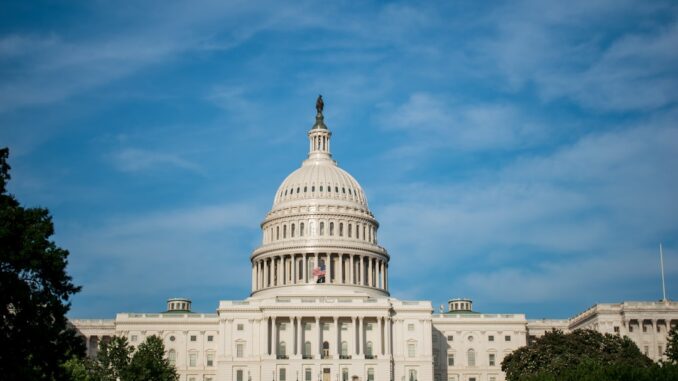
In a landmark move, the U.S. Senate and House have advanced pivotal legislation to regulate digital assets, signaling a transformative shift in the cryptocurrency landscape. The GENIUS Act, CLARITY Act, and Anti-CBDC Act collectively aim to establish comprehensive frameworks for stablecoins, clarify digital asset classifications, and prevent the Federal Reserve from issuing a central bank digital currency.
GENIUS Act: Establishing Stablecoin Standards
On July 18, 2025, President Donald Trump signed the GENIUS Act into law, marking a significant milestone for the U.S. cryptocurrency industry. This bipartisan legislation establishes consumer protections and regulatory frameworks for stablecoins—digital currencies tied to stable assets like the U.S. dollar to minimize volatility. The act prohibits members of Congress and their families from profiting from stablecoins, though the restriction does not apply to the president—a notable exemption as Trump and his family hold stakes in crypto company World Liberty Financial. (apnews.com)
Investor Identification, Introduction, and negotiation.
The GENIUS Act requires stablecoin issuers to maintain one-to-one reserves in U.S. dollars or equivalent liquid assets, ensuring that each digital dollar is redeemable on demand. Entities managing over $50 billion in stablecoin supply are subject to annual audits by independent firms. This legislation aims to balance innovation, privacy, and oversight, supporting broader crypto adoption and encouraging businesses and investors to engage with digital assets. (kiplinger.com)
CLARITY Act: Defining Digital Asset Classifications
The House of Representatives has passed the Digital Assets Market Clarity Act (CLARITY Act), which seeks to resolve regulatory confusion between the SEC and CFTC by defining clear rules for digital asset markets. Its progress is crucial to fostering innovation and confidence in the ecosystem. (kiplinger.com)
The CLARITY Act aims to establish a market structure, including regulatory oversight by the Commodity Futures Trading Commission (CFTC) and the Securities and Exchange Commission (SEC), for the offer and sale of digital assets. Entities are expected to comply with core principles such as trade monitoring, record-keeping, reporting, antitrust considerations, and conflicts of interest. Additional requirements include provisions related to Bank Secrecy Act/anti-money laundering compliance and custody. (kpmg.com)
Anti-CBDC Act: Preventing Central Bank Digital Currency
The Anti-CBDC Surveillance State Act, also approved by the House, opposes the creation of a U.S. central bank digital currency (CBDC), addressing privacy concerns and reinforcing the value of decentralized cryptocurrencies like Bitcoin. (kiplinger.com)
This bill prohibits the Federal Reserve from offering, directly or indirectly, a CBDC or any digital asset that is substantially similar under any other name or label to an individual through a financial institution or other intermediaries. (kpmg.com)
Market Reactions and Future Implications
The passage of these bills has elicited varied reactions from the cryptocurrency community. While some view the legislation as a step toward mainstream adoption, others express concerns about potential overregulation. For instance, the GENIUS Act’s prohibition on members of Congress and their families profiting from stablecoins has raised questions about its implications for industry leaders with existing investments. (apnews.com)
As these bills progress through the legislative process, stakeholders are closely monitoring their potential impact on the crypto market, investor confidence, and the future of financial systems in the U.S.
References
- (apnews.com)
- (kiplinger.com)
- (kpmg.com)


Be the first to comment